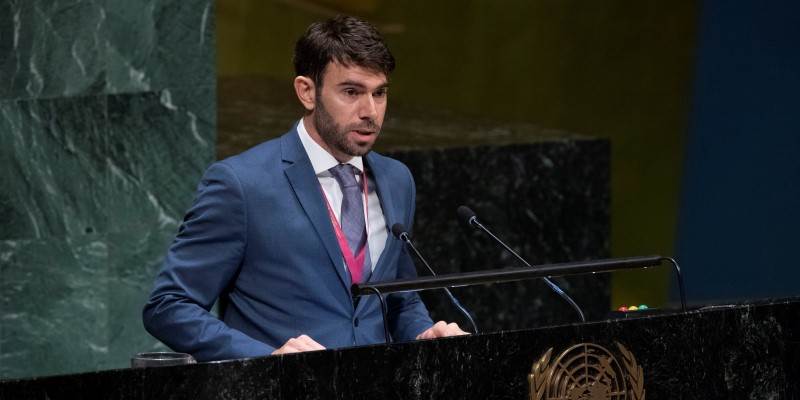Mr/Madame President,
Your excellencies, and distinguished colleagues. Let me first thank the delegation of Brazil for its steady leadership of this year’s resolution on Global Health and Foreign Policy.
The negotiations have been particularly challenging this year, and I commend your efforts and success in achieving our collective outcome.
This year marks the tenth anniversary for the tabling and adoption of this resolution. In 2007, the Oslo Ministerial Declaration was spearheaded by the foreign ministers of Brazil, France, Indonesia, Norway, Senegal, South Africa and Thailand.
Our shared concern then, as now, is that health is one of the most important, yet broadly neglected foreign policy issues of our time. And it needs our continued and strategic focus here at the UN.
It is therefore encouraging that there is a raised awareness of the centrality of health to attaining our common development objectives.
Mr./ Madame President,
The topic of this year’s resolution - nutrition - is essential in our endeavors to achieve a healthy population. Improving nutrition involves complex interrelationships between diet and disease. And the effects of malnutrition, including underweight, stunting, overweight and obesity, all heighten risks for both infectious and non-communicable diseases.
Several of these concerns are adequately addressed in this year´s resolution. However, we regret that the language around non-communicable diseases and nutrition in OP 10 does not sufficiently address some of the concrete policies and actions needed.
We consider the language here to be weaker than what we collectively agreed at the High Level Meeting on Non-Communicable diseases, as late as September this year.
In my country’s view, the key to attain the nutrition-related SDGs, reducing disease and premature death, is through ensuring increased consumption of healthy and nutritious foods. This means we must make a concerted effort to avoid consumption of unhealthy foods that are high in sugars, salt, saturated fats and trans-fats.
The normative work of the World Health Organization has shown that there are cost-effective ways to achieve this. Examples include; use of fiscal measures such as taxation, the use of front pack labelling and restrictions on marketing of unhealthy foods and beverages, especially those aimed at children.
The evidence base for applying these recommended measures, is clear. We therefore urge Member States seeking to improve health through better nutrition, to implement the WHO cost-effective actions and recommendations.
Health is an integrated element in a number of different SDGs. Improving health and access to health services for all has a direct impact on poverty reduction, ending hunger, gender equality, education, peaceful societies, and I could go on. Progress on health, means progress towards achieving the entire Agenda 2030.
Health and improved nutrition are among the most important building blocks of any well-functioning society. It is a long-term investment, but it is one that we must make now. We have no time to lose.
I thank you.
